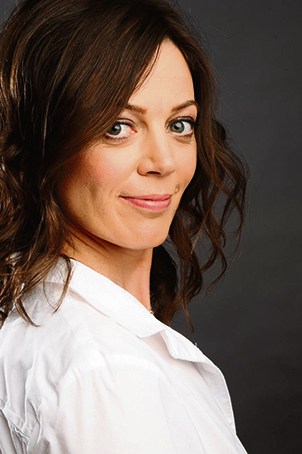Business psychologist Sarah Rozenthuler has spent well over a decade training the top dogs of the world’s largest financial institutions in how to lead teams and get the most from their employees.
She also called the Barbican home, for a time, watching the Square Mile empty out every Friday evening and fill up once again come Monday morning.
So it would be fair to say that Sarah has a pretty good idea of what makes a City firm tick. And what doesn’t. Communication, she says, or lack thereof, is the catalyst for inefficiency.
“I often have this group of incredibly smart individuals sitting around a table, but when the bun fights start and people throw their toys out of the pram, all this intelligence just gets sucked out of the room depressingly quickly,” she says.
Consulting for the likes of Old Mutual, Ernst & Young, BP and World Bank made her realise that leaders have the most instrumental role to play in breaking down these barriers, which is why the City’s corporate bigwigs are her target market for an innovative new programme of leadership workshops in Bishopsgate next week.
Developed in partnership with consultant Ed Rowland, ‘Leading Systemic Dialogue: Unlocking Collective Intelligence’ aims to equip managers with the tools to harness individual talents towards productivity and innovation.
The two-day course trains leaders to manage breakdowns in communication between different teams and facilitate a forum where open discussion is encouraged.
The programme draws on concepts outlined in Financial Times journalist Gillian Tett’s book The Silo Effect, which was released to generally high praise late last year.
Tett uses the term ‘silo’ to describe a workplace mindset where departments are inward looking and resist sharing information with other parts of the organisation. So, what stops us from speaking up?
“The way people are working now is more cross-functional, everybody has a piece of the puzzle – leaders need different departments to be working together to get the best outcomes,” Sarah says. “Poor communication and ‘silo working’ in organisations costs millions of pounds daily.
“Rivalry between departments, lack of trust and unresolved conflicts between individuals all undermine collective performance.”
As for the solution to all this stony silence, Sarah says managers need to invoke a combination of changes to transform the environment they create for their employees and develop “more skillful ways of interacting”.
“Leaders need to create conditions where people feel safe to find their voice and speak up – you need better listening, more curiosity, people asking questions of each other.”
Sarah says that the focus on the US elections has brought a renewed energy and focus on what makes good leadership in the 21st century, the subject of her next book.
“I think the general consensus is that leadership needs a pivot, a change, it needs to be less about individual heroism, more about making the team the measure of success. Leaders need to start looking at what will strengthen the whole organisation, the team…the country.”
‘Leading Systemic Dialogue: Unlocking Collective Intelligence’ will be held over 9 and 10 November at St Ethelburga’s Centre in Bishopsgate EC2N 4AG.
Go online to wholepartnership.com/programme/leading-systemic-dialogue for more information.







